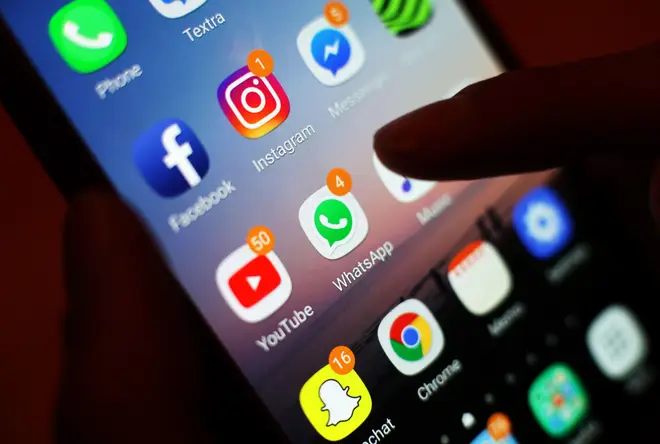
Tom Swarbrick 4pm - 7pm
25 April 2023, 08:47 | Updated: 25 April 2023, 09:02

Tory minister Sajid Javid has today labelled end-to-end encrypted online chats a "digital playground for paedophiles" ahead of the Government's proposed amendments to the Online Safety Bill.
Speaking with Nick Ferrari at Breakfast, the Conservative MP for Bromsgrove said the Government needs to protect children from further "abhorrent" online abuse using a key amendment to the bill.
Explaining the Government had developed software that would "pre-screen" the content of such messages, he added the move would prevent the spread of child abuse imagery.
Javid cited findings from the Internet Watch Foundation - a charity that sets out to protect children by removing and preventing abusive online content - warning of a sharp rise in child abuse images being shared online.
The organisation is responsible for tracking down sexual imagery and telling technology companies to remove or block the material.
Its annual report says the amount of the most extreme content found online has doubled since 2020, with Javid highlighting that over 255,000 illegal images of sexual abuse have so far been taken down online.

Sajid Javid says end of end encryption makes WhatsApp a 'playground for paedophiles'
He added that nearly a fifth of that content related to the most serious types of abuse, including the rape and torture of children and serious sexual abuse of toddlers - a figure that has nearly doubled in recent years.
"In the bill, the Government has introduced an amendment, that I want to say because some people are campaigning against it. And this is to do with something called end-to encryption," Javid said.
"And that's when someone uses say WhatsApp, the message today is completely totally, utterly, private between the sender and the recipient."
The Government's Online Safey Bill has faced widespread scrutiny and seen a series of amendments put forward since its introduction, including calls for social media users who encourage self-harm online to be prosecuted, proposing such behaviour to be labelled a criminal offence.
Read more: 'Holy c*** - we've got no plan, what will we do?': Shocked Boris's reaction to Brexit vote revealed
Read more: UK to start evacuating Brits from war-ravaged Sudan after start of 72-hour ceasefire
"This is a playground for paedophiles. This is something where they can share this imagery and stuff and not be frightened of getting caught in any way or being punished because this is a digital playground," said Javid.
Claiming there to be "a lot of common ground" between parties where the online bill is concerned, Javid said such amendments are about "taking advantage of the opportunities" the government has to curb the use of such chats to spread illegal material.
"Its about using new technology to prevent this kind of crimes," explained Javid, adding: "we’ve got to do more".


The bill has seen a number of amendments put forward since its conception, notably following the inquest into teenager Molly Russell’s death, which revealed that harmful online content was a contributing factor to her taking her own life.
"I think that people will be shocked to learn that that's what's happening with this kind of end-to-end encryption. What the Government, working with industry, the IWF (Internet Watch Foundation), and others have come up with is a privacy friendly way to pre-screen such content," Javid added.
"So think of it as something that some software that's on your smartphone.
"There's no third-party access, but it pre-screens it and prevents the uploading of child sexual imagery and videos so they cannot be shared."
Under the bill's original plans, the biggest platforms would have been compelled to not only remove illegal content, but also any material which had been named in the legislation as legal but potentially harmful.
Recent amendments mean there will be a greater requirement for firms to provide adults with tools to hide certain content they do not wish to see - including types of content that do not meet the criminal threshold but could be harmful to see, such as the glorification of eating disorders, misogyny and some other forms of abuse.